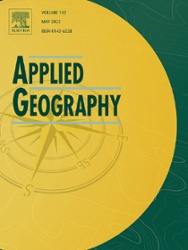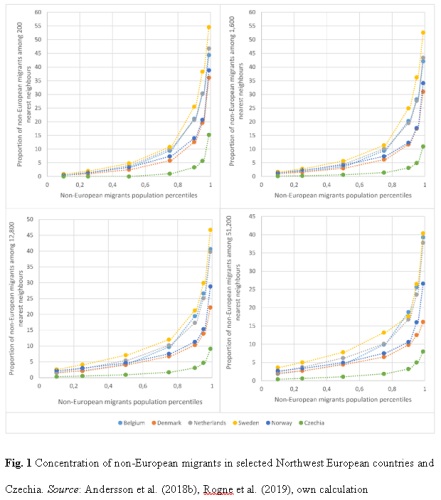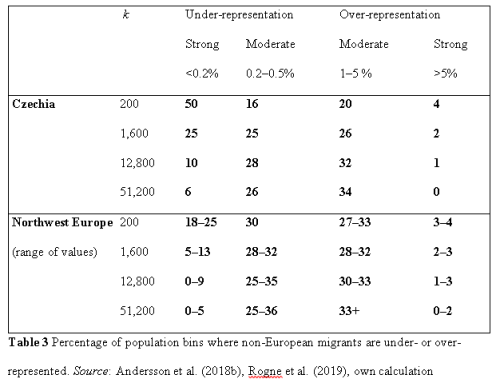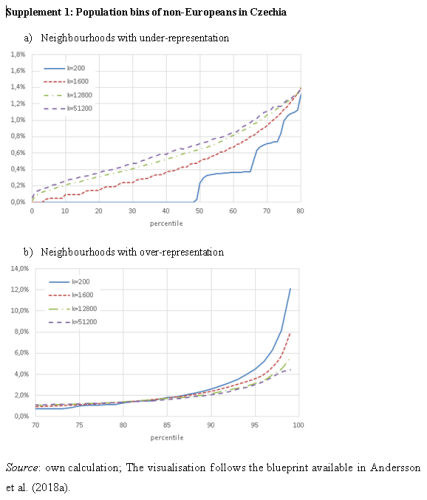Křížková, Ivana, Šimon, Martin. 2022. „Measuring residential segregation of non-European migrants using the individualised neighbourhood method: How does Czechia fit to the European landscape?“. Applied Geography. XX (x): xx – xx. ISSN 0143-6228. Available from: https://doi.org/10.1016/j.apgeog.2022.102730
Comparative research aiming to explain differences in segregation on national level is highly desirable for public policy in increasingly diverse countries including new immigrant destinations. This study explores residential segregation of non-European migrants in Czechia using the individualised scalable neighbourhood method based on anonymised geocoded register data. Czechia is the main immigrant-receiving country in Eastern European post-socialist context. To place our results in a comparative perspective we replicated the methodology of recent comprehensive study of residential segregation in Northwest Europe by ResSegr project. The comparison indicate overall similarity of residential segregation of non-European migrants in selected Northwest European countries (Belgium, Denmark, the Netherlands, Norway and Sweden) and in Czechia across spatial scales when measured by index of dissimilarity for individualised neighbourhoods. However, the decomposition to neighbourhood concentration and neighbourhood representation indices challenges this result. Non-European migrants are less concentrated in Czechia at all scales. Lower over-representation and higher under-representation in neighbourhoods in Czechia provide an evidence that large-scale neighbourhoods with a considerable non-European migrant concentration known from other European countries are close to non-existent in Czechia. In the conclusion, we draw implications for neighbourhood research and policy and question the pertinence of the term segregation in European context.
Authors
Department
Topics
Housing, City and Village, Research Methodology, Migration and Mobility, Social Inequalities, Public Administration, Standard of Living
Attached Files
- poster_paa_2021_ik.pdf (pdf, 465.23 KB)





